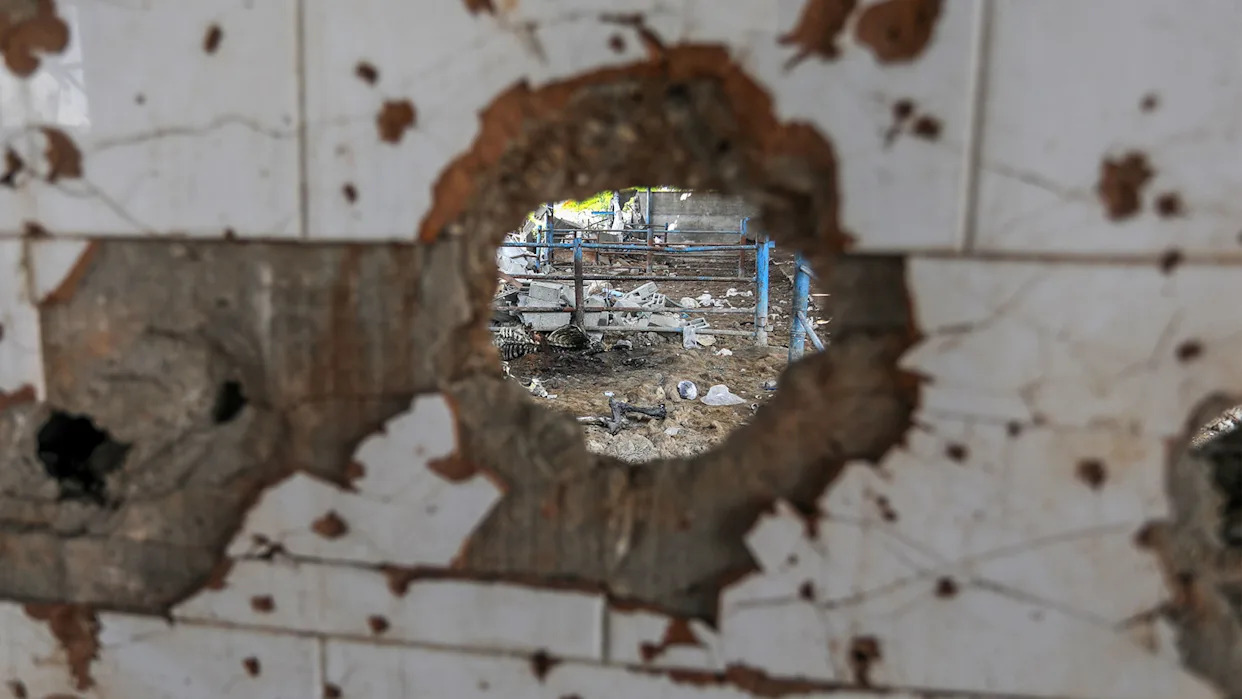
News
October 17, 2025
From genocide to ecocide: After years of war, Gaza faces an environmental crisis ‘above imagination’
A new report by scientists in Israel details the emerging environmental crisis in Palestine.
Gaza is facing an environmental catastrophe of unimaginable proportions after years of conflict, a new report by Israeli scientists reveals. The report paints a grim picture of widespread pollution, resource depletion, and ecosystem damage, raising serious concerns about the long-term health and sustainability of the region.
While the international community has largely focused on the immediate humanitarian crisis in Gaza, this study highlights the devastating environmental consequences of the ongoing conflict. It argues that the damage extends far beyond the physical destruction of buildings and infrastructure, impacting the very air, water, and land that Gazans depend on.
The report details how constant bombardment and the use of heavy weaponry have left a legacy of soil contamination. Explosives release harmful chemicals into the ground, making it difficult to grow crops and posing risks to human health. The destruction of vital infrastructure, like sewage treatment plants, has led to the widespread contamination of water sources, increasing the risk of waterborne diseases.
Furthermore, the report emphasizes the severe depletion of natural resources. Years of blockade and limited access to essential materials have placed immense pressure on local resources, leading to over-extraction of groundwater and unsustainable agricultural practices. This, coupled with the destruction of agricultural land, threatens food security and the livelihoods of many Gazan families.
The scientists behind the report are urging for immediate action to address the environmental crisis. They stress the need for international cooperation to provide technical assistance, funding, and resources for environmental remediation and sustainable development initiatives. They warn that without urgent intervention, the environmental damage will become irreversible, further exacerbating the already dire humanitarian situation in Gaza and impacting future generations. The report serves as a stark reminder that the consequences of conflict extend far beyond the immediate casualties, leaving a lasting scar on the environment and the lives of those who depend on it. It calls for a comprehensive approach to recovery that addresses both the immediate needs and the long-term environmental challenges facing Gaza.
While the international community has largely focused on the immediate humanitarian crisis in Gaza, this study highlights the devastating environmental consequences of the ongoing conflict. It argues that the damage extends far beyond the physical destruction of buildings and infrastructure, impacting the very air, water, and land that Gazans depend on.
The report details how constant bombardment and the use of heavy weaponry have left a legacy of soil contamination. Explosives release harmful chemicals into the ground, making it difficult to grow crops and posing risks to human health. The destruction of vital infrastructure, like sewage treatment plants, has led to the widespread contamination of water sources, increasing the risk of waterborne diseases.
Furthermore, the report emphasizes the severe depletion of natural resources. Years of blockade and limited access to essential materials have placed immense pressure on local resources, leading to over-extraction of groundwater and unsustainable agricultural practices. This, coupled with the destruction of agricultural land, threatens food security and the livelihoods of many Gazan families.
The scientists behind the report are urging for immediate action to address the environmental crisis. They stress the need for international cooperation to provide technical assistance, funding, and resources for environmental remediation and sustainable development initiatives. They warn that without urgent intervention, the environmental damage will become irreversible, further exacerbating the already dire humanitarian situation in Gaza and impacting future generations. The report serves as a stark reminder that the consequences of conflict extend far beyond the immediate casualties, leaving a lasting scar on the environment and the lives of those who depend on it. It calls for a comprehensive approach to recovery that addresses both the immediate needs and the long-term environmental challenges facing Gaza.
Category:
World